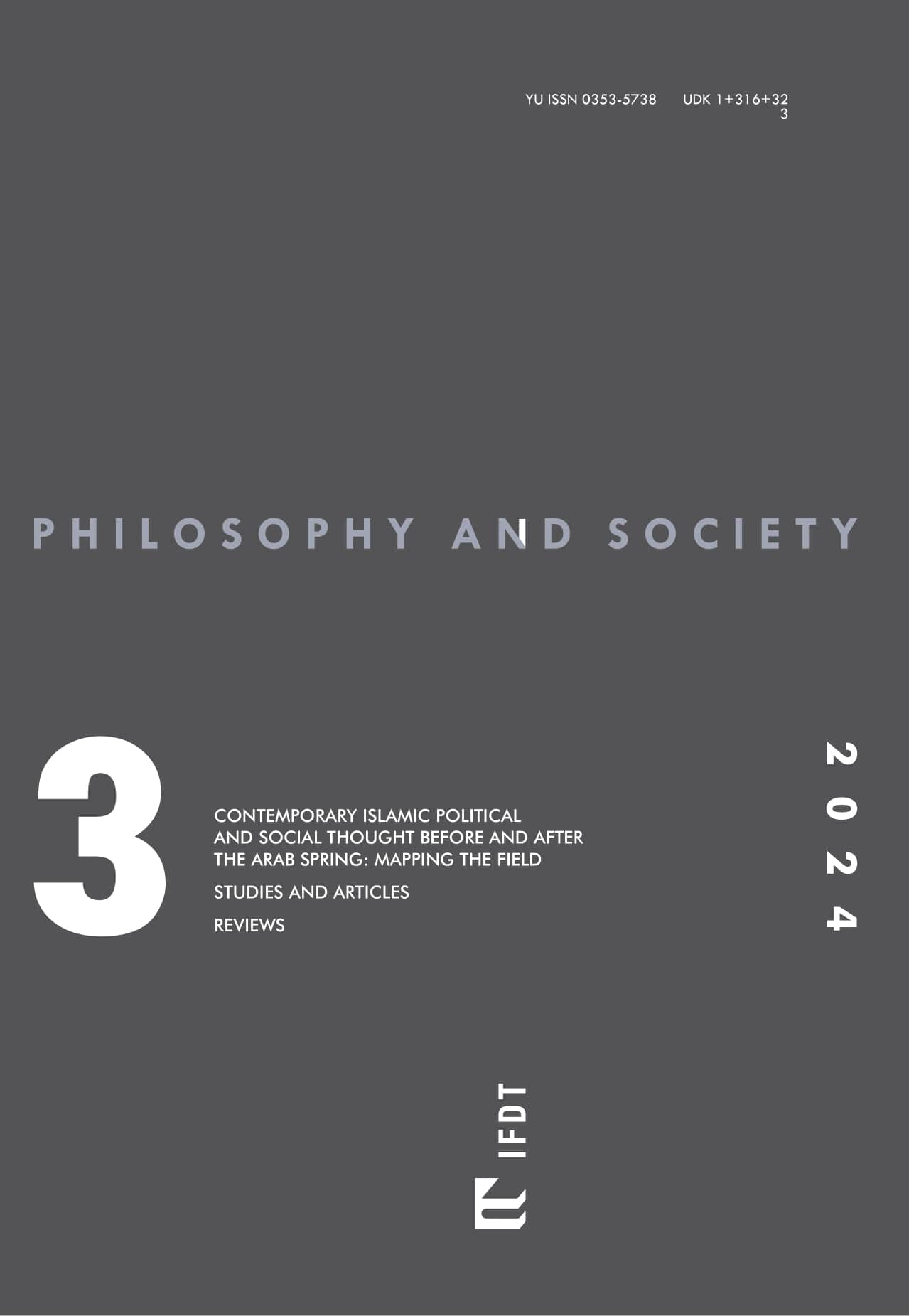Revisiting Post-Islamism a Decade After the Arab Spring
Revisiting Post-Islamism a Decade After the Arab Spring
Author(s): Mohammad AffanSubject(s): Philosophy, Special Branches of Philosophy, Theology and Religion, Islam studies, Philosophy of Religion, Contemporary Islamic Thought, Sociology of Religion
Published by: Institut za filozofiju i društvenu teoriju
Keywords: Islamism; Post-Islamism; Muslim Democracy; Muslim Brotherhood; Ennahda Movement Party
Summary/Abstract: The Arab Spring uprisings marked a watershed moment in regional politics, significantly impacting Islamist movements in terms of strategies, ideologies, and organizational structures. Accordingly, this paper examines whether these dramatic events strengthened or weakened the post-Islamist evolution of traditional political Islam movements, focusing on the Egyptian Muslim Brotherhood (E-MB) and the Tunisian Ennahda Movement Party (EMP) as case studies. The proposed hypothesis is that the Arab Spring has variably influenced Islamists. In Egypt, it initially weakened the post-Islamist turn of the E-MB. However, owing to the 2013 coup and subsequent repression, the E-MB was politically excluded and weakened, creating a vacuum that was filled by various forms of less political or non-ideological forms of Islamic activism. The Tunisian Islamists had a different story. The Arab Spring seems to have strengthened their transition to post-Islamism. In its tenth conference, the EMP declared its exit from political Islam, adopting the new concept of Muslim Democracy. Even after the presidential takeover in July 2021, which resulted in the political exclusion of the EMP, the Work and Achievement party that defected from it maintained clear post-Islamist features.
Journal: Filozofija i društvo
- Issue Year: 35/2024
- Issue No: 3
- Page Range: 501-514
- Page Count: 14
- Language: English

